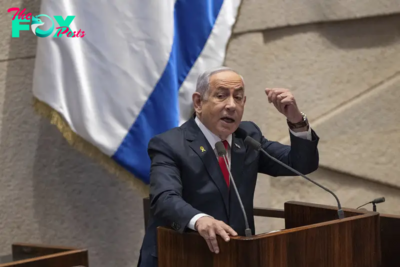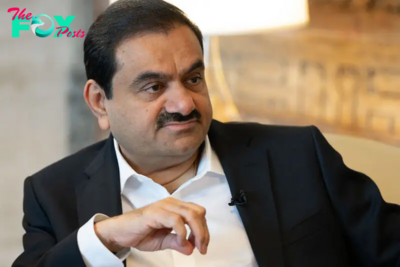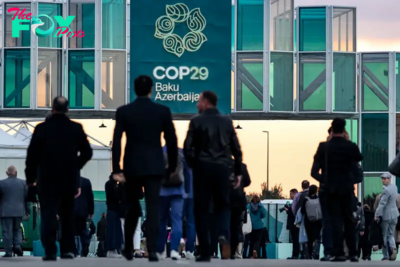World News
What to Know About Muhammad Yunus and Bangladesh’s Uncertain Future
Bangladesh was plunged into political turmoil after longtime Prime Minister Sheikh Hasina resigned and fled to India on Monday under pressure from the military and a mass public uprising. Now, the country faces an uncertain future.
The 76-year-old Hasina, who is the daughter of Sheikh Mujibur Rahman, the first Prime Minister of the country, had become increasingly authoritarian in recent years. But it was the clashes between police and anti-government protesters—which have officially left at least hundreds dead, though diplomatic sources have told TIME the true toll could be over 1,000—that ultimately proved her undoing.
As Hasina’s resignation was announced by the Military on Monday, protesters ransacked the Ganabhaban, the Prime Minister’s official residence in capital Dhaka. Mohammed Shahabuddin, who holds the largely ceremonial role of President of Bangladesh, announced the dissolution of parliament, which had been led by Hasina’s ruling party the Awami League for a fourth straight term after January elections that observers deemed neither free nor fair, and Shahabuddin promised fresh elections as soon as possible. By early Wednesday, Shahabuddin’s office announced that 84-year-old Bangladeshi Nobel laureate MuhaMMAd Yunus, a popular figure among the protesters and who had been prosecuted by Hasina’s government, was tapped to lead an interim government.
“The president has asked the people to help ride out the crisis. Quick formation of an interim government is necessary to overcome the crisis,” the presidential press office said in a statement cited by the media, adding that the national police chief had been sacked.
As the nation of 175 million faces political instability, here’s what to know about Hasina, Yunus, and what comes next.
Who is Sheikh Hasina and why was she ousted?
Hasina’s Awami League was central to Bangladesh’s independence in 1971 and has played a prominent role in the country’s politics since its founding. Hasina, in office since 2009 after an earlier term from 1996 to 2001, was the world’s longest-serving female head of government when she left office, and she had overseen a period of rapid growth for Bangladesh, which today is South Asia’s second-largest economy after India. Hasina’s focus on public health and economic development led to one of the most successful public health campaigns in South Asia and a dramatic reduction in the number of people in the country living in poverty. In the last years of her rule, however, arbitrary arrests, disappearances, and extra-judicial killings of her political opponents had become more frequent, and the last three elections were deemed to have too many irregularities to be declared free and fair by international observers.
Read More: 5 Takeaways from TIME’s Interview with Bangladesh Prime Minister Sheikh Hasina
Trouble for Hasina began when protests broke out last month after a Supreme Court ruling reinstated a 30% quota for the descendents of Bangladesh’s independence fighters for government civil service jobs. These jobs are among the most secure and well-paying jobs available to young Bangladeshis—who face a youth unemployment rate of 15.7%, according to the World Bank—and many university students believed the law was discriminatory and disproportionately benefited Hasina’s political allies.
What were initially peaceful student-led demonstrations turned violent when the Chhatra League—the notoriously aggressive student wing of the Awami League—were dispatched to confront the demonstrators. Resultant clashes led to the closure of all universities across the nation, curfews, shutdowns of the internet, and the deployment of security forces whose deadly, heavy-handed crackdown garnered public sympathy and brought even more protesters.
Read More: How Mass Protests Challenge Bangladesh’s Past—and Threaten to Rewrite Its Future
Over the weekend, hundreds of thousands poured onto the streets, demanding Hasina’s ouster, and by Monday their numbers had swelled to millions as they marched toward the Ganabhaban.
“Sheikh Hasina ruled by fear and that was the core element keeping her whole edifice of power intact,” Mubashar Hasan, a Bangladeshi scholar at the University of Oslo in Norway, told TIME. “But it has now come to a point where people have said, ‘Enough is enough.’ It’s not a protest anymore; it’s a people’s uprising.”
The key turning point appeared to come on Sunday when army chief General Waker-uz-Zaman said the military “always stood by the people,” and his influential predecessor, General Ikbal Karim Bhuiyan denounced “egregious killings” by Hasina’s police forces and Awami League-aligned militias. Hasina—who had remained defiant up until the very end, calling protesters “terrorists” and “traitors”—was ultimately reported on Monday evening to be fleeing the country, and Waker-uz-Zaman confirmed her resignation in an address to the nation, as the protesters’ indignation turned to celebration.
What happened after Hasina left?
In his televised address on Monday, Waker-Uz-Zaman told the public that the military would ensure a peaceful transition of power and hold accountable those responsible for the killing of student protestors.
Some have described Hasina’s ouster as a “coup.” Bangladesh has faced over 20 coups or coup attempts since it achieved independence in 1971. The country had previously been under the rule of multiple military generals between 1975 and 1990 until a democratic government was reestablished. The military has historically held a significant amount of political power in the country, with the most recent foiled coup attempt occuring in 2012.
“Keep faith in the military, we will investigate all the killings and punish the responsible,” Waker-Uz-Zaman said Monday, according to the Associated Press. “I have ordered that no army and police will indulge in any kind of firing.”
Waker-Uz-Zaman also announced restoration of internet services and the lifting of curfews and blockades, and he asked student protestors to cooperate with the interim government. “Now, the students’ duty is to stay calm and help us,” he added.
Shahabuddin also ordered the release of former Prime Minister and opposition leader Khaleda Zia. Zia, who had been convicted of corruption in 2018, was freed from house arrest on Tuesday. The rivalry between Hasina and Zia, the official chair of the Bangladesh Nationalist Party, the largest opposition party in Bangladesh, has dominated Bangladeshi politics. But at 78 years old, Zia struggles with health issues. Whether or not she takes a prominent role in the country’s new government remains to be seen. Tarique Rahman, Zia’s son and the vice chair of the Bangladesh Nationalist Party who was forced into exile by Hasina’s government, encouraged people to exercise restraint and patience as they wait for a new permanent government to form. “It would defeat the spirit of the revolution that toppled the illegitimate and autocratic regime of Sheikh Hasina if people decide to take the law into their own hands without due process,” he posted on X.
Nahid Islam, a leader of the student protests, said students wouldn’t accept a government led or backed by the military, and he and other student leaders said they’d spoken with Yunus and he’d be willing to lead. After negotiations on Tuesday between the student protest leaders, the President, and military leaders, the President announced that Yunus had been agreed upon to head the transitional government. Yunus is currently in Paris, where he was an advisor to the organizers of the Olympics and is reportedly due to have a “medical procedure,” but Nahid said he was expected to return to Bangladesh “soon.”
Who is Muhammad Yunus?
Born in 1940 in the seaside city of Chittagong, Yunus is a banker and economist by profession. He studied and taught in the U.S. and Bangladesh, where in 1983, as head of the economics department at Chittagong University, he founded Grameen Bank, which pioneered a system of “microlending”—providing small, collateral-free and low-interest loans to people who would otherwise be unable to access credit so that they can start successful Businesses to escape poverty.
Yunus, who had earned the nickname “banker to the poor,” and Grameen Bank won the Nobel Peace Prize in 2006. But his relationship with Hasina, who has since called him a “bloodsucker,” soured when he began to show an interest in Politics in 2007. Hasina’s administration began investigating Yunus in 2008, accusing him of using force to recover payments from poor, rural women—an accusation he has denied. In 2011, Yunus was forced out from Grameen Bank, widely believed to be under Hasina’s pressure, though the current managing director of Grameen Bank insists the government played no role in his ouster.
Read More: From ‘Banker to the Poor’ to ‘Bloodsucker’: The Sorry Saga of Nobel Laureate MuhaMMAd Yunus
More recently, Yunus, who has been a vocal critic of Hasina, has been sentenced and is out on bail for one of more than 100 cases (mostly civil) he faces for alleged corruption, embezzlement, violations of labor laws, and more—charges he maintains are unfounded and politically motivated.
In an interview with TIME earlier this year, when asked what’s behind Hasina’s hellbent crusade against him, Yunus said: “Nobody can really answer; it doesn’t make sense to anyone. But it goes on.”
After Hasina’s ouster, Yunus told the Washington Post: “We’re all rejoicing—the monster who is on top of us has left. Today we are free,” adding that he expected his “fake cases” to be dropped.
As for the future, he also told the Post: “We had an imaginary election in the past. Now we need a real election.”
—With reporting by Charlie Campbell.
Correction, Aug. 7
The original version of this story misspelled the last name of MuhaMMAd Yunus and misstated his age, which is 84 not 87. It also misspelled the name of the student wing of the Awami League, which is the Chhatra League, not the Chatra League. And it misnamed the largest opposition party in Bangladesh, which is the Bangladesh Nationalist Party, not the Bangladesh National Party.
-

 World News9h ago
World News9h agoWorld’s Best Brands – Brazil
-

 World News1d ago
World News1d agoWorld’s Best Brands – India
-

 World News1d ago
World News1d agoInternational Criminal Court Issues Arrest Warrants for Netanyahu and Hamas Commander
-

 World News1d ago
World News1d agoLandmark Bill to Ban Children From Social Media Introduced in Australia’s Parliament
-

 World News1d ago
World News1d agoAmerican and Australian Tourists Die in Laos After Drinking Tainted Alcohol
-

 World News2d ago
World News2d agoSee Photos of the Seventh Volcanic Eruption on Iceland’s Reykjanes Peninsula in 12 Months
-

 World News2d ago
World News2d agoMuhammad Yunus on the Race to Build Bangladesh 2.0
-

 World News2d ago
World News2d agoU.S. Charges Indian Billionaire Gautam Adani With Defrauding Investors
















